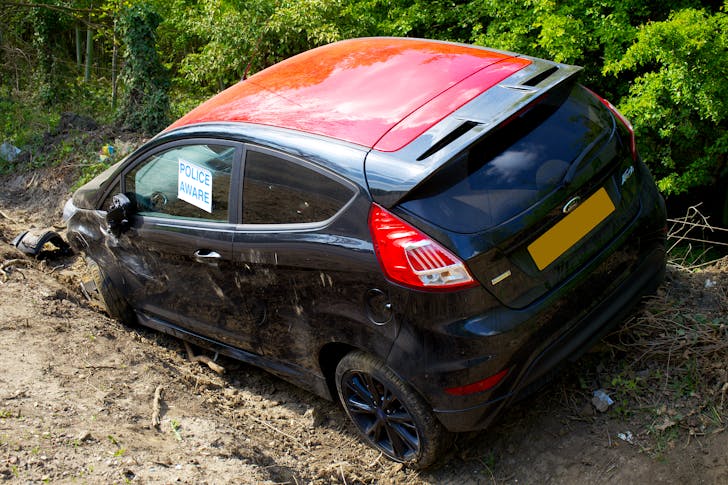
Do Not Make These Fatal Mistakes After a Not-at-Fault Accident

Getting into a wreck is bad enough. But making the wrong move after a not-at-fault accident? That can turn a bad day into a financial and legal nightmare. A not-at-fault accident means you are not at fault and you are not responsible for the accident.
Here is what you need to know to protect yourself and avoid costly mistakes.
Admitting Fault at the Scene
After a not-at-fault accident, your emotions are running high. You might feel guilty or just want to smooth things over. But saying things like “I’m sorry” or “I should have seen you” can be twisted against you later. Insurance companies love using anything they can to pin the blame on you.

Mike / Pexels / If you are not at fault, why admit it? Don’t be sorry! Make the one at fault responsible.
Instead, stay calm. Stick to the facts when speaking with the other driver, police, or insurance adjusters. Let the professionals determine fault based on the evidence. Your words have power, don’t let them work against you.
Not Calling the Police
Skipping a police report is like throwing away your best evidence. Some drivers might suggest just “handling it ourselves,” especially if the damage looks minor. Big mistake. A police report is an official record that can prove you were not at fault.
Without it, the other driver can change their story later, and you have no proof to back you up. Always call the police, no matter how small the accident seems. A solid report can be the difference between getting fully compensated and getting stuck with the bill.
Lacking Enough Evidence
After a not-at-fault accident, the burden of proof is on you. If you don’t document everything, you are giving the insurance company an easy way to lowball or deny your claim. Relying on memory alone is a disaster waiting to happen.
Take photos of everything: Your car, their car, license plates, traffic signs, and any injuries. Get witness names and contact info. The more evidence you have, the stronger your case. If you don’t gather proof at the scene, you might never get another chance.
Not Notifying Your Insurance Provider
You might think, “Why tell my insurance? It wasn’t my fault!” But failing to notify them is a risky move. If the other driver’s insurance drags their feet or denies responsibility, your own insurance needs to be ready to step in.

Pixabay / Pexels / Regardless of the nature and type of the accident, it is essential to notify your insurance provider.
Even if the damage seems minor, report it. Your policy may have coverage that helps you now, and keeping them in the loop prevents problems later. Plus, waiting too long could violate your policy’s rules, leaving you without coverage when you need it most.
Accepting a Settlement Without Legal Advice
Insurance companies love to throw quick cash at victims in hopes they will take it and go away. But accepting a lowball offer can mean missing out on thousands of dollars in medical bills, lost wages, and future costs. Once you sign, you are stuck.
Before agreeing to anything, talk to a lawyer. They know what your claim is really worth and can push for the compensation you deserve. A little patience and expert advice now can save you from huge regrets later.
More in Legal Advice
-
New York to Mail Out One-Time Inflation Rebates. Here’s the Eligibility List
New York is preparing to send out its first-ever inflation refund checks, providing financial relief to millions of residents as prices...
October 3, 2025 -
Here’s What Artists Should Know About Copyright & Its Implications
Copyright protects your art from the moment you create it. The second your drawing, painting, sculpture, or photo is fixed in...
September 27, 2025 -
Everything to Know About Vogue America’s New Editor, Chloe Malle
Chloe Malle just stepped into one of the most powerful roles in fashion media: Head of Editorial Content at Vogue America....
September 21, 2025 -
Did Barron Trump Apply to Harvard? Clearing Up the Rumors
Speculation often swirls around public figures, and in recent months Barron Trump’s college choices became part of the conversation. Questions surfaced...
September 20, 2025 -
Can You Be Naked in Texas?
The Texas public nudity law isn’t as simple as “no clothes, you are in trouble.” It all comes down to intent,...
September 13, 2025 -
Why AI Is Now a Necessity, Not a Choice, for Law Firms
Artificial intelligence is no longer a futuristic concept for the legal industry. It is steadily changing how law firms operate, not...
September 13, 2025 -
Waikiki Lifeguard Cleared in Confrontation With Notorious Criminal
On a hot day at Kuhio Beach, veteran lifeguard Christopher Kekaulike Kam stepped in when things got out of control. A...
August 13, 2025 -
Gawking at the Coldplay ‘Kiss Cam’ Affair Is Voyeurism at Its Worst!
Coldplay concerts are meant to be joyful. But during a recent show, a playful kiss cam bit turned into a public...
August 6, 2025 -
Essential Safety and Success Resources for Trans Journalists
Trans journalists go through tough spaces every day. In a field that often tests your limits, knowing where to turn for...
July 30, 2025














